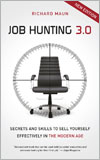better business blog
Tips and stories to add value to you and your organisation

The Humility Pivot
Leadership. So easy to talk about and so hard to do in practice. We’ve all read the books, attended the workshops and eaten the breakfast cereal. Well maybe not exactly the latter, but leadership tips are, like cornflakes, ubiquitous.
One of my favourite books on the subject is Good To Great because the researchers found to their surprise that effective corporate bosses are not egotistical, gung-ho, TV types.
They were quiet, self-effacing and laced with a steely determination to get the job done.
These are the kind of leaders whom you’ve never heard and who work hard to keep it that way. One example of an exemplar was so successful that he ended up on the cover of a prestigious magazine and was so surprised and appalled at this that he had a heart attack.
Determination makes sense and if the top person in the big swivel chair lacks it, the organisation is in trouble.
However, it’s not about ‘succeeding at all costs’ …rather it’s about gathering information, listening to people and making sure everyone keeps pushing in the agreed direction.
This brings me to humility.
With it, we listen and admit our blindspots and account for the facts.
Without it, we can become arrogant and ignorant of people’s needs and concerns.
I’m sure we all think of ourselves as humble, but how often are we really tested? How often do we get to own up to our mistakes?
A few weeks ago I was coaching a manager who had been put under pressure by his boss to complete a stupid amount of work in a ridiculously short period of time.
The manager said to me that it was the last straw and he was now planning to leave. He didn’t want to go, but the boss was just never going to change.
And then to our surprise he did just that.
Sensing the tension his junior was under he met with him and apologised for his behaviour. It was a fulsome and sincere apology too, not a half-baked hand wringing exercise.
My client was stunned.
Then he realised that his boss wasn’t such a bad sort really and had been under pressure himself. The apology was a pivot in their relationship and the manager is now happily scudding along with his work, comfortable that his boss does care and that he can admit to his mistakes.
If the cost of recruitment is roughly half the salary of the person being hired (think of admin time and the natural underperformance of a new hire) then one apology saved that organisation about £20,000.
Not a bad return for a dash of humilty.
Working relationships can easily drift off course and yet with humilty in us and the sense to deploy it, we can pivot our relationships back into a productive zone.
It’s up to us.
Next week: Zero Budgeting
e-publishing
Click icon for details


recent posts
browse archive
books
Click cover to view details on Amazon

How to Keep Your Job
Brilliant ways to increase performance, stay employed and keep the money rolling in
Published 2011 Marshall Cavendish
208pp

Job Hunting 3.0
Secrets and skills to sell yourself effectively in the Modern Age
Published 2010 Marshall Cavendish
260pp

 RSS
RSS


